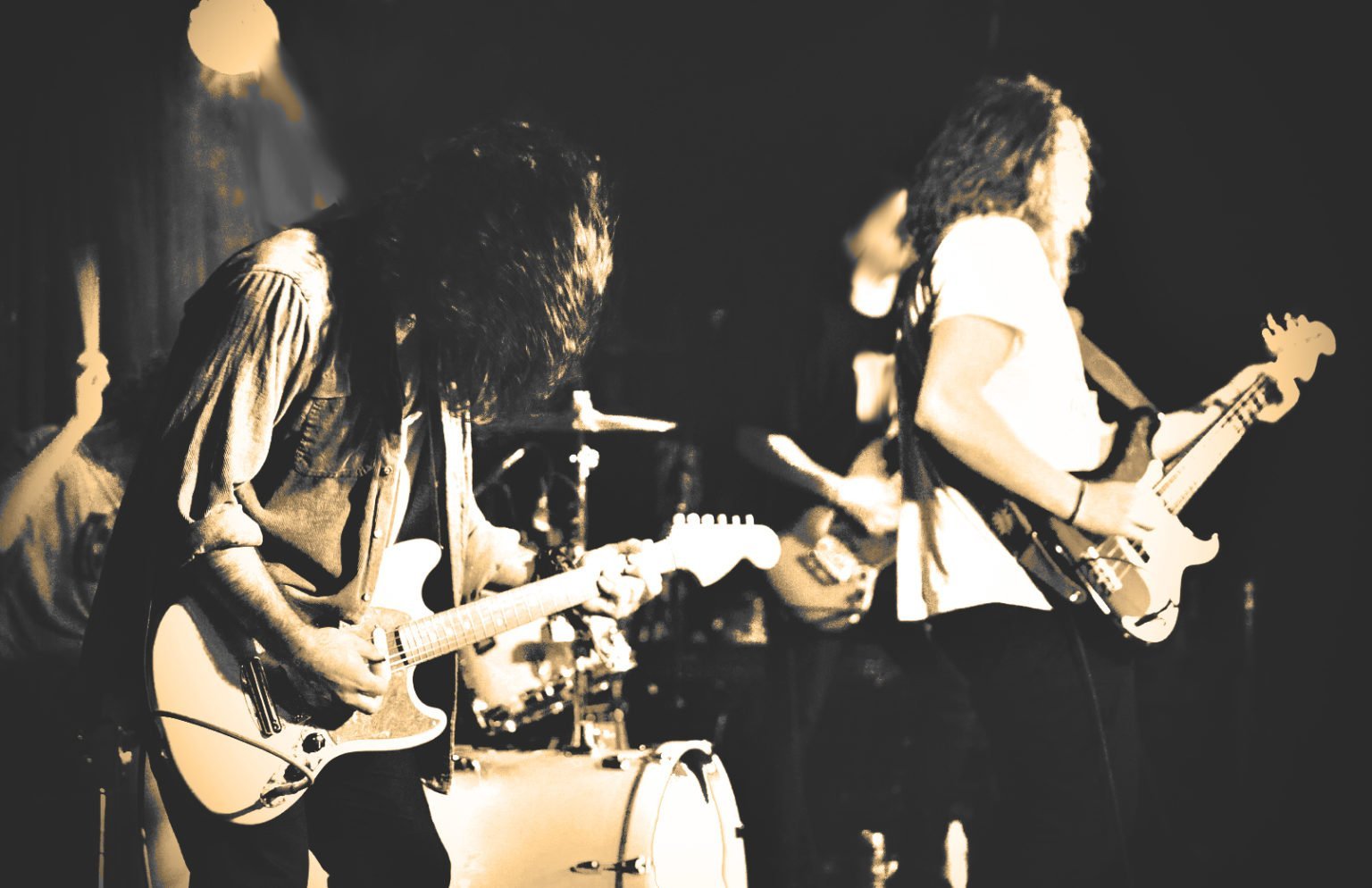News
11 Feb 2022
The Gaffa Tapes: Fifty Ways To Lose Your Agent

Subscribe to CX E-News
Snippets from the archives of a bygone era
My first band gig was with a 17-year-old bass player who refused to wear shoes, and a stand-in drummer who’d drank half a bottle of Jack Daniel’s and took a loaded weapon into the venue.
Our performance, which was a fill-in job at a trendy beer garden in Sydney’s eastern suburbs, didn’t evoke the appreciation we had anticipated. Neither the audience nor the management were impressed even though I had all my Status Quo guitar licks down and the barefooted bass player had additionally removed his shirt in an attempt to thrill the conservative audience.
Ironically, it was our unshod bass player who later attracted a club agency that was in need of a rock ‘n’ roll band to do some regional work. I got the feeling that the agent who turned up at our scout hall rehearsal wasn’t all that elated. However, he hinted that if we came up with a glossy promo he might be able to get us into some of those club gigs in the bush.
We engaged a professional photographer to do the shoot, and a printing company to do our four-page promo for the agency. How could they resist? We found another drummer and virtually overnight we became a touring band.
It was 1976. This was the year Elvis did his last show at the Las Vegas Hilton, John Lennon won his permanent residency in the US, and Peter Freedman, founder of RØDE microphones, was selling Dynacord and Freedman PA systems out of his father’s music shop in Ashfield, NSW. I eventually decided on a Peavey PA-400 six channel with column speakers, and we hired our first lighting rig from Julius Grafton at Barratt Lighting. This was long before photo IDs and Julius humorously quipped, “Don’t forget to bring it back or Luigi break your arm.”
The band floundered from gig to gig, all the time landing regional club gigs where we weren’t all that well-received and we were continually being asked to turn down the volume. Most clubs at the time seemed to be experiencing an extended hangover from the 60s. If we were forcibly made to play a barn dance we’d do The Rolling Stones’ Dead Flowers, but we drew the line at playing club standards like Zorba the Greek, Hava Nagila, and the most hated band song in history Running Bear.
As 1976 was morphing into 1977 we got a $300 New Year’s Eve gig at a Sydney RSL club. As was often the case our music was a bit raw for your average club patron. Our second drummer had departed and on this occasion the fee allowed us to attract a stand-in drummer who was much more musically advanced than we were. Midway through the gig the Club Manager announced to us that we were to back the main act.
“I’m guessing you guys don’t read sheet music,” he said.
This was something house bands did in those days, but we didn’t even know there was a main act.
The act was the Frank Crisafi Trio, billed as an international variety trio. “I’ll just take bass and drums,” said Crisafi. It was a stroke of luck that our stand-in drummer could read charts. Then the bass player chimed in. “I’ll do it,” he said.
I took the bass player aside explaining to him that he could neither read sheet music nor chord charts, and to drive the message home I pointed out that he could barely name the strings on his bass guitar. “So how are you going to manage this?” I enquired. He came up with the novel idea that I could stand behind the rear stage curtain and shout out the chord progressions. He would then simply play the root note of the chord. What could possibly go wrong?
I set up the Shure 545 and 588 microphones on my Peavey PA for the two singers and one to mic up the grand piano. The act began with the female lead bursting into a rendition of Jezebel. I took my place behind the curtain and began to shout out the chord progressions. We’d only gotten a few bars into the song when the bass player turned and said, “Mate, you didn’t plug a lead into her microphone.”
The singer was too far into the song to stop so I had to take the microphone from the piano and hand it to her. “I thought it was one of those new wireless microphones,” she whispered. Meanwhile, the band played on with the bass player vamping on one note anxiously awaiting my return.
Returning to my hiding place behind the curtain I continued relaying the chords: “A, D, G, Bm,” but the bass player stalled at Eb, crying out, “Where the f*ck’s that?” Needless to say, the act wasn’t too impressed with the backing.
News kind of filtered back to the agency, which for some reason tolerated us through all the turmoil. Perhaps it was the heavy PR I did, often dropping in and chatting with the girls, or taking them champagne at Christmas. I was forever making excuses for adversities that even extended to mass walkouts by patrons at more than one club.
Late ’77 we merged with a metal band adding another guitarist and a drummer who brought with him a kit with multiple rack toms. Our repertoire went from Status Quo and The Kinks to Thin Lizzy, Aerosmith, and Black Sabbath. The grinding onslaught from Marshall amps and speaker stacks combined with the hard-hitting drumming and the bass player’s barefooted, bare-chested theatrics got us into even more hot water. Ultimately, the bass player didn’t want to do the club gigs anymore and he moved on.
The band often indulged in excessive alcohol consumption and other abusive substances to the detriment of the performances. Those Pink Floyd lyrics, ‘And when the band you’re in starts playing different tunes,’ became a reality for us one evening when we realised the second guitarist was actually playing a different tune to the rest of us. Then there was the time the bottom end completely dropped out because the drummer had left the stage to throw up in the band room toilet.
The guys started objecting to continually being asked to turn down in the agency club gigs. They insisted that I invite our agent down to re-evaluate the band. It was the year that Elvis died, and after our agent witnessed what we’d become it was also the death of our agency gigs. They never booked us again!
In desperation we took a low-paid residency in a western suburbs hotel where patrons would imbibe until they could no longer pronounce the name of their drink. Ultimately we got shafted after one of our roadies got into a scrap with an employee. Things went downhill rather quickly after that. Our last gig was a disaster and we unanimously decided to disband with all of us realising that we had lost our way, and the alcohol and substance abuse didn’t sit well in the music mix.
Footnote: Some names, including those of people, venues and other entities have been withheld due to the inevitability of variations in versions of events. After all, it was the 70s.
Subscribe
Published monthly since 1991, our famous AV industry magazine is free for download or pay for print. Subscribers also receive CX News, our free weekly email with the latest industry news and jobs.






